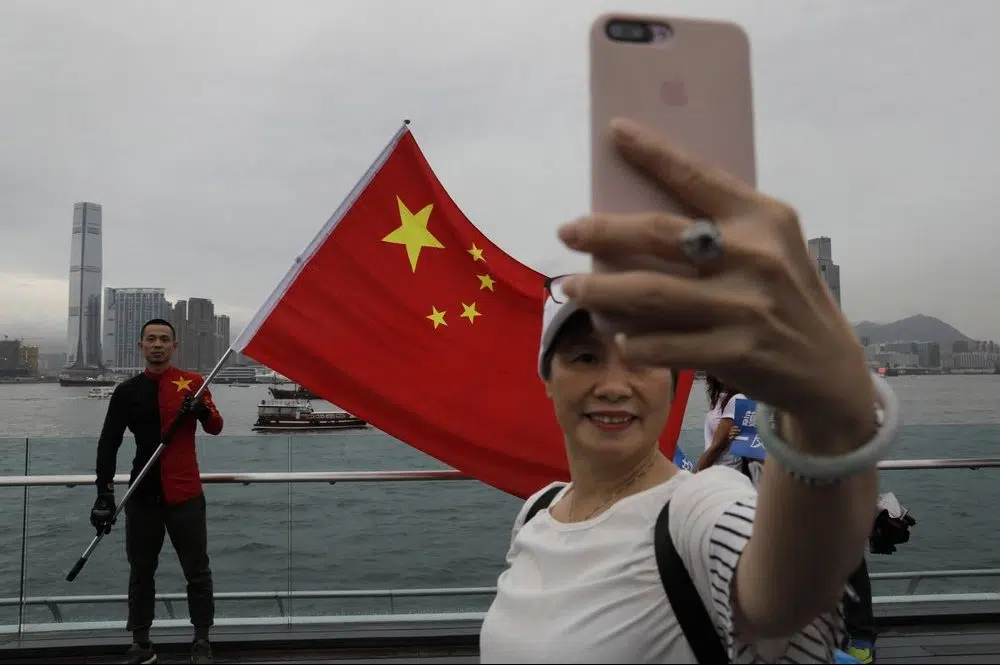WASHINGTON (AP) — Twitter said it has suspended more than 200,000 accounts that it believes were part of a Chinese government influence campaign targeting the protest movement in Hong Kong.
The company also said Monday it will ban ads from state-backed media companies, expanding a prohibition it first applied in 2017 to two Russian entities.
Both measures are part of what a senior company official portrayed in an interview as a broader effort to curb malicious political activity on a popular platform that has been criticized for enabling election interference around the world and for accepting money for ads that amount to propaganda by state-run media organizations.
The accounts were suspended for violating the social networking platform’s terms of service and “because we think this is not how people can come to Twitter to get informed,” the official said in an interview with The Associated Press.
The official, who spoke on condition of anonymity because of security concerns, said the Chinese activity was reported to the FBI, which investigated Russian efforts to interfere in the 2016 U.S. presidential election through social media.
After being notified by Twitter and conducting its own investigation, Facebook said Monday that it has also removed seven pages, three groups and five accounts, including some portraying protesters as cockroaches and terrorists.
The Chinese government said Tuesday it wasn’t aware of the allegations.
Facebook, which is more widely used in Hong Kong, does not release data on such state-backed influence operations. Neither does it ban ads from state-owned media companies.
“We continue to look at our policies as they relate to state-owned media,” a Facebook spokesperson said in a statement to the AP. “We’re also taking a closer look at ads that have been raised to us to determine if they violate our policies.”
Twitter traced the Hong Kong campaign to two fake Chinese and English Twitter accounts that pretended to be news organizations based in Hong Kong, where pro-democracy demonstrators have taken to the streets since early June calling for full democracy and an inquiry into what they say is police violence against protesters.
The Chinese language account, @HKpoliticalnew, and the English account, @ctcc507, pushed tweets depicting protesters as violent criminals in a campaign aimed at influencing public opinion around the world. One of those accounts was tied to a suspended Facebook account that went by the same moniker: HKpoliticalnew.
An additional 936 core accounts Twitter believes originated from within China attempted to sow political discord in Hong Kong by undermining the protest movement’s legitimacy and political positions.
About 200,000 more automated Twitter accounts amplified the messages, engaging with the core accounts in the network. Few tweeted more than once, the official said, mostly because Twitter quickly caught many of them.
The Twitter official said the investigation remains ongoing and there could be further disclosures.
Though Twitter, Facebook and most other foreign social media platforms are banned in China, they’re available in semiautonomous Hong Kong.
At a daily briefing Tuesday, Chinese foreign ministry spokesman Geng Shuang said he was “not aware” of the allegations of fake accounts, but added that Chinese people had the right to “express their opinions about” the situation in Hong Kong.
The free speech organization PEN America welcomed the tech companies’ actions and urged them to do more.
“China’s government has denied its citizens access to global outlets for communication. That they now turn around and stealthily unleash a campaign of disinformation on the very same platforms represents a new height of hypocrisy,” chief executive Suzanne Nossel said in a statement.
The Twitter campaign reflects that the Chinese government has studied the role of social media in mass movements and fears the Hong Kong protests could spark wider unrest, said James Lewis at the Center for Strategic and International Studies.
“This is standard Chinese practice domestically, and we know that after 2016 they studied what the Russians did in the U.S. carefully,” Lewis said. “So it sounds like this is the first time they’re deploying their new toy.”
Twitter has sought to more aggressively monitor its network for malicious political activity since the 2016 presidential election and to be more transparent about its investigations, publicly releasing data about state-backed influence operations since October so others can evaluate it, the official said.
“We’re not only telling the public this happened, we’re also putting the data out there so people can study it for themselves,” the official said.
As for state-backed media organizations, they are still allowed to use Twitter, but are no longer allowed to pay for ads, which show up regardless of whether you have elected to follow the group’s tweet.
Twitter declined to provide a list of what it considers state-backed media organizations, but a representative said it may consider doing so in the future. In 2017, Twitter specifically announced it would ban Russia-based RT and Sputnik from advertising on its platform.







